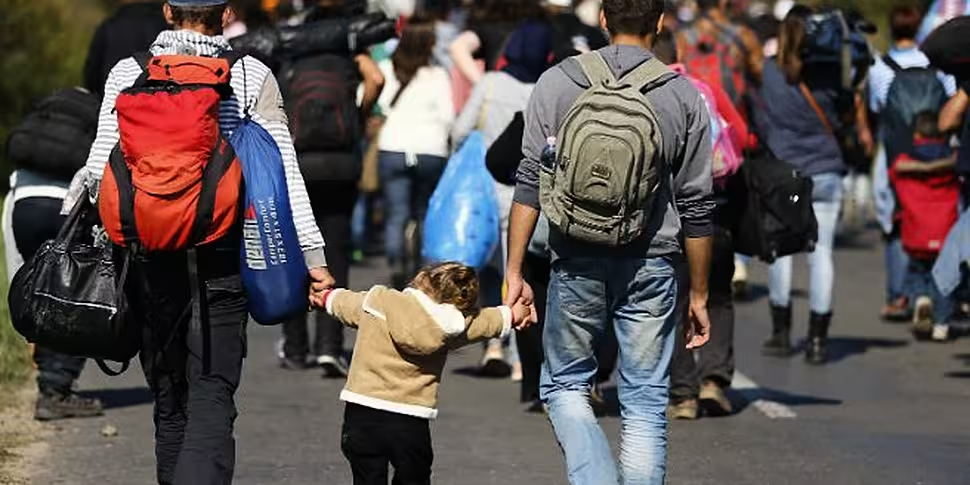The government has signed off on a plan to accept 4,000 refugees into Ireland over the coming months.
A special cabinet meeting today agreed to set up a new Irish Refugee Protection Programme, including special reception centres to process arrivals, and outlined a framework for how the entire system will be handled.
Shortly after the announcement the Minister for Justice Frances Fitzgerald spoke to Newstalk Breakfast and outlined how the system will work, what it will cost, and where the refugees will go.
You can listen to the full interview here, and the main points of what we know so far are listed below.
The government met this morning at 7am to discuss the crisis. The Cabinet agreed to found a refugee protection programme in Ireland and while practical details are, unsurprisingly, a little scant, the general framework has been set out.
Where are the refugees coming from?
- Ireland will primarily be taking refugees who are currently in Greece and Hungary.
- Ireland will mostly be taking refugees from Syria and Eritrea.
- The European Commission is to establish a system in Greece, Hungary and Italy to do preliminary assessments of refugees. From here the decisions will then be made on where in the European Union to send people.
- The EU officials in the front line countries will essentially decide who goes where in Europe – with family and social factors taken into account and a liaison officer from Ireland (and each member state) linking in with the decision makers in the front line countries, such as Greece and Italy.
What is the government plan for when the refugees arrive in Ireland?
The government is to establish emergency reception and orientation centres around the country – at the request of the European Commission.
A task force including government departments, voluntary organisations and the religious community is to be set up to manage the programme.
Integration measures including English language training are to be provided as a priority when the refugees arrive.
Special priority will be given to the plight of unaccompanied minors.
Gardai are to liaise with EU & international policing bodies to ensure appropriate vetting arrangements put in place for all new arrivals.
Where will refugees go?
The Minister was not totally clear on this point – but did say there will be a mix of accommodation, all of which will be audited over the coming weeks with some needing investment to convert it to a suitable reception centre.
The possible locations include:
- Defence force owned property
- Office of the Public Works sites
- Commercial properties
Will these people be treated differently to those who are in Direct Provision?
Yes. The major complaint against Direct Provision is the long waiting period, with some people in the system for years now.
The new refugees arriving will not be put through the Direct Provision system. Once someone is assessed as a refugee, which Ms Fitzgerald expects to happen quickly, they will be allowed to work in Ireland - unlike someone win Direct Provision who is banned from work.
Reform of the Direct Provision system is also on the way, but it will not be linked to this current programme.
“The expectation across Europe” is that some 90% will qualify as refugees, Ms Fitzgerald said. This is why the programme will operate in a different manner to the typical Direct Provision process.
What will it cost to home the refugees?
The government will spend €12m per 1000 refugees – this equates to €12,000 per refugee, a figure based on the cost per year of housing someone in Direct Provision.
The European Commission is to provide €6000 per person, so based on the rough figures we have so far we can take it that the cost to Ireland per person will be €6000.









